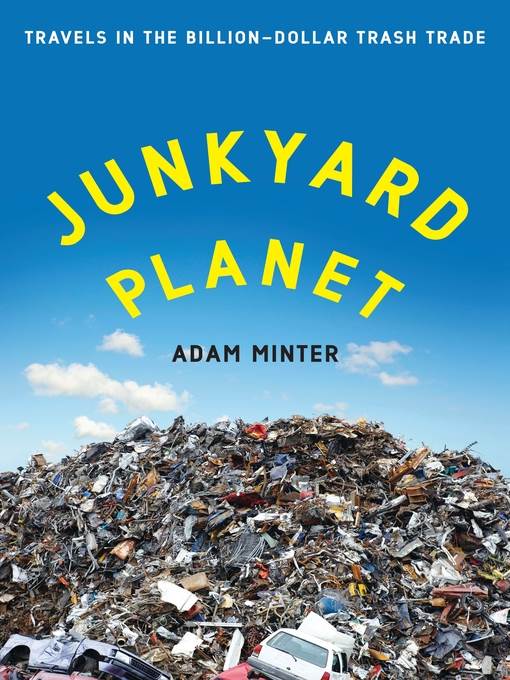
Junkyard Planet
Travels in the Billion-Dollar Trash Trade
کتاب های مرتبط
- اطلاعات
- نقد و بررسی
- دیدگاه کاربران
نقد و بررسی

September 9, 2013
Growing up as the son of a scrap dealer in Minneapolis, Minter learned firsthand that one man’s trash is truly another man’s treasure. In his first book, the Shanghai-based journalist charts the globalization of the recycling trade, focusing on the U.S. and China, and featuring a cast that ranges from self-made scrap-metal tycoons to late-night garbage pickers. Notable passages include a trip to Wen’an, one of China’s most notoriously polluted plants where employees process hazardous materials while wearing sandals. Minter successfully resists oversimplifying the issue China currently faces—with a growing middle class demanding more raw materials for new construction, the options are living with the pollution caused by recycling or the environmental consequences of mining for raw materials. Minter takes readers through the Shanghai market where parts are harvested from second-hand electronics, but finds that the more complex the technology, the harder it is to reuse the metals. The scrap trade is one of the few business ventures possible in the developing world and this “profession for outsiders” shows no signs of slowing down. Minter concludes that the solution is in the first word in the phrase, “Reduce. Reuse. Recycle.” 2 16-page color inserts.

October 15, 2013
The international recycling business comes under the probing and widely roaming yet ultimately friendly eye of a young journalist. Bloomberg World View Shanghai correspondent Minter, who grew up working in his family's junkyard, focuses on scrap metal since the most recycled product in the world, by weight, is an American car. The author concentrates mostly on the United States, a prodigious producer of scrap, and on China, the largest importer of American recyclables, and he fills his story with some colorful characters in both countries. For example, there is Leonard Fritz, the octogenarian founder of a major U.S. recycling firm who began his career in the 1930s scrounging in city dumps, and Johnson Zeng, a Chinese trader headquartered in Canada who travels the United States bargaining for scrap metal to ship to Guangdong Province. These two represent the shift that has taken place in recent decades from local junkyards to a multibillion-dollar global business. Besides exploring the financial side of this huge and profitable business, Minter ventures inside modern processing sites with enormous conveyer belts, sorting machines and shredders and into small workshops where women crouch around plastic bins and pick out bits of metal by hand. Minter acknowledges the damage done to people and the environment by low-tech electronics recycling in the developing world, but he asserts that "the worst, dirtiest recycling is still better than the very best clear-cut forest or the most up-to-date open-pit mine." Still, Minter, who understands that not everything can be recycled and that some goods are far more difficult to recycle than others, concludes with some advice for concerned environmentalists and conservationists: Demand that companies design products that first can be repaired, then reused and finally recycled. A detailed view of a mostly unknown business that touches the lives of everyone, whether or not they ever dragged a trash and/or recycle bin out to the curb.
COPYRIGHT(2013) Kirkus Reviews, ALL RIGHTS RESERVED.

























دیدگاه کاربران